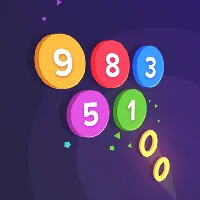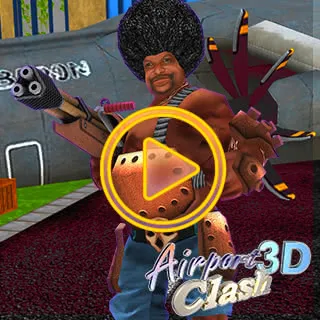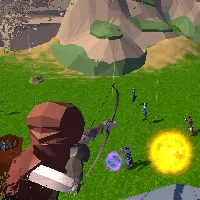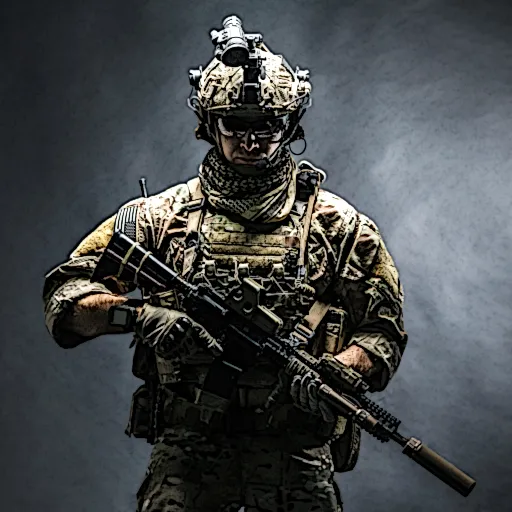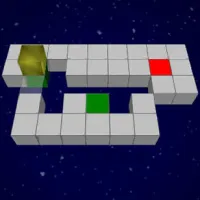PUPPET MASTER
SIMILAR GAMES
Description
Puppet Master - GamePluto
About Puppet Master - GamePluto
In the intricate and often shadowy world of digital entertainment, the concept of a "Puppet Master" resonates with a particular allure. It evokes images of unseen forces, strategic manipulation, and ultimate control. When this theme intersects with the dynamic landscape of video games, it promises an experience that is both intellectually stimulating and deeply engaging. Our exploration into the realm of Puppet Master, as presented by GamePluto, delves into this compelling archetype, uncovering the layers of design, gameplay, and thematic depth that contribute to its fascination.
GamePluto, as a platform dedicated to showcasing innovative and captivating gaming experiences, brings to the forefront titles and concepts that push the boundaries of interactive storytelling and strategic gameplay. The idea of a Puppet Master in a game context suggests a player or an in-game entity that orchestrates events, influences characters, or dictates the flow of narrative and action from a position of superior knowledge or influence. This often involves a delicate balance of power, where the true objective is achieved not through direct confrontation, but through carefully calculated maneuvers and the exploitation of vulnerabilities.
Understanding what constitutes a Puppet Master within the gaming sphere requires an appreciation for mechanics that allow for indirect control, foresight, and long-term planning. It’s about the player becoming the architect of a grand design, where individual actions of others, whether AI-controlled or human opponents, are merely pieces on a larger chessboard. This type of gameplay often appeals to a specific segment of the gaming community that relishes strategic depth and the satisfaction of outthinking opponents through superior planning rather than raw reflexes.
Unveiling the Puppet Master Archetype in Gaming
The Puppet Master archetype in video games is multifaceted, often manifesting in various forms across different genres. At its core, it represents a character or player who wields influence from behind the scenes, pulling strings to achieve their objectives. This can range from a high-level strategist in a real-time strategy game, directing armies and economic resources, to a cunning antagonist in a narrative-driven title, manipulating events to foster chaos or achieve a hidden agenda. The essence lies in the perception of control and the impact of decisions made by this central, often unseen, figure.
In many instances, the Puppet Master is not directly engaged in the front-line combat or immediate action. Instead, their strength lies in their ability to anticipate moves, exploit environmental factors, and leverage the actions of others. This can involve deploying traps, setting up ambushes, manipulating enemy AI behavior, or even influencing the morale and decision-making of allied units. The satisfaction derived from playing as, or encountering, a Puppet Master often stems from the intellectual challenge of understanding complex systems and identifying opportunities for subtle yet devastating interventions.
The narrative implications of a Puppet Master are also profound. Such characters often serve as compelling antagonists or complex protagonists whose motivations are shrouded in mystery. Their actions, while seemingly random or chaotic to those affected, are typically part of a larger, meticulously crafted plan. This creates a sense of intrigue and encourages players to piece together the puzzle, to understand the ultimate goal of the manipulator. The reveal of the Puppet Master’s true intentions can be a pivotal moment in a game's story, offering a satisfying conclusion to a complex narrative arc.
Strategic Depth and Indirect Control
The gameplay mechanics associated with a Puppet Master archetype are designed to facilitate indirect control and strategic foresight. This often involves a suite of abilities that allow the player to influence the environment or other entities without direct personal engagement. For instance, in a tactical simulation, a player embodying a Puppet Master might focus on resource management, research advancements, and the deployment of specialized units or support assets that affect the battlefield from afar. The key is the ability to shape the conflict by providing advantages or disadvantages to different parties involved.
Consider a scenario in a real-time strategy game where the Puppet Master player’s primary objective is not to personally lead assaults but to systematically degrade an opponent’s infrastructure and morale. This could involve sabotaging supply lines, spreading misinformation to confuse enemy forces, or creating diversions that draw attention away from a more critical area. The player’s presence is felt through the consequences of their actions, rather than their direct participation in skirmishes. This style of play demands a high level of situational awareness and the capacity to think several steps ahead.
In role-playing games, the Puppet Master might be a character who excels at diplomacy, manipulation, or espionage. Their influence is exerted through dialogue choices, forging alliances, or orchestrating events that lead to specific outcomes, often without direct confrontation. The player engaging with this archetype must master the art of persuasion, deception, and careful observation to guide the narrative and achieve their goals. This often involves understanding the personalities and motivations of non-player characters and using that knowledge to their advantage.
The Psychological Aspect of Being a Puppet Master
The psychological appeal of the Puppet Master archetype lies in the inherent human fascination with control and the desire to understand complex systems. For players, embodying such a role offers a unique sense of agency and power. It's about the thrill of orchestrating a complex sequence of events, of seeing a plan come to fruition through meticulous planning and subtle intervention. This taps into a primal drive to shape one’s environment and influence outcomes, offering a deeply satisfying gaming experience.
The feeling of being the Puppet Master is akin to that of a chess grandmaster, where every move is calculated, and the ultimate victory is a testament to superior intellect and foresight. The game becomes less about immediate reaction and more about understanding the underlying mechanics and anticipating the actions and reactions of others. This intellectual engagement can be incredibly rewarding, providing a sense of accomplishment that transcends mere victory on a scoreboard.
Furthermore, the narrative implications often amplify this psychological draw. Witnessing the domino effect of one’s actions, seeing characters dance to a tune they are unaware of, can be a powerful and even cathartic experience. It allows players to explore themes of free will, destiny, and the nature of power in a safe and engaging virtual environment. The Puppet Master’s journey is often one of profound self-discovery, as they navigate the moral complexities of their actions and grapple with the consequences of their influence.
GamePluto's Vision of the Puppet Master Concept
GamePluto is committed to exploring diverse and engaging game concepts, and the Puppet Master theme represents a significant area of interest. Our approach is to highlight how this archetype can be realized through innovative game design, compelling narratives, and sophisticated gameplay mechanics. We believe that games featuring a Puppet Master element offer a unique intellectual challenge and a distinct form of player empowerment, appealing to those who seek more than just superficial engagement.
Our curation and presentation of titles that embody the Puppet Master concept aim to showcase the depth and breadth of its potential. Whether it's a game where players meticulously manage resources and influence units from afar, or a narrative experience where characters are subtly manipulated to serve a grander design, GamePluto seeks to bring these compelling experiences to the forefront. We recognize the artistry involved in crafting gameplay that allows for such nuanced forms of control and strategic thinking.
The Puppet Master, as envisioned through GamePluto’s lens, is not merely a character who gives orders, but an entity whose very presence shapes the game world and its inhabitants. It’s about understanding the intricate interplay of systems and leveraging that knowledge to achieve victory through intelligence and foresight. This dedication to showcasing games with profound strategic depth and intricate thematic elements underscores GamePluto’s commitment to delivering high-quality, thought-provoking gaming content.
Examples of Puppet Master Mechanics
The realization of the Puppet Master archetype in gameplay can manifest through a variety of distinct mechanics, each designed to empower the player with indirect control and strategic oversight. These mechanics often require a keen understanding of the game’s systems and the ability to predict opponent behavior.
- Resource Manipulation: A core element for many Puppet Master games involves the strategic allocation and management of resources. This could include gathering raw materials, managing economic output, or controlling the flow of energy or information to fuel operations or hinder opponents. Effective resource management allows the player to build infrastructure, research advanced technologies, or deploy specialized assets that provide a strategic advantage.
- Information Warfare and Deception: The ability to gather intelligence and control the flow of information is crucial for a Puppet Master. This can involve deploying spies, hacking enemy systems, or spreading misinformation to sow confusion and misdirection. By understanding an opponent's movements and intentions, a Puppet Master can effectively counter their strategies and exploit their weaknesses.
- Environmental Control and Trap Setting: Many games allow the Puppet Master to interact with and manipulate the game environment to their advantage. This could include setting up ambushes, creating hazardous zones, or altering terrain to impede enemy progress. The environment itself becomes a tool in the Puppet Master’s arsenal, used to control the battlefield and dictate the terms of engagement.
- Unit Specialization and Support: Instead of directly commanding large armies, a Puppet Master might focus on the development and deployment of highly specialized units or powerful support abilities. These could range from stealth units capable of sabotage to long-range artillery that can bombard enemy positions from afar, or powerful support drones that provide buffs or debuffs to allied and enemy forces respectively.
- AI Influence and Behavioral Modification: In games with sophisticated AI, a Puppet Master might have the ability to influence the behavior of non-player characters, either friendly or hostile. This could involve subtly directing enemy patrols, encouraging specific behaviors in allied units, or even creating psychological diversions that draw enemy attention away from critical objectives.
- Narrative Branching and Event Triggering: Within story-driven games, the Puppet Master archetype often manifests through dialogue choices, quest selection, and the ability to trigger specific narrative events. The player’s actions can have far-reaching consequences, subtly altering the course of the story and influencing the fates of characters and factions. This requires a deep understanding of the game's narrative structure and the motivations of its characters.
The Enduring Appeal of the Puppet Master
The concept of the Puppet Master continues to captivate players and game developers alike due to its inherent complexity and the profound sense of agency it offers. It appeals to a segment of the gaming community that thrives on intellectual challenges, strategic planning, and the satisfaction of orchestrating intricate outcomes. The ability to influence events from behind the scenes, to be the unseen hand guiding the narrative or the battlefield, provides a unique and deeply rewarding experience.
This archetype allows for exploration of themes that resonate beyond the digital realm, touching upon concepts of power, control, destiny, and free will. The player who embraces the Puppet Master role is not just playing a game; they are engaging in a mental chess match, a delicate dance of influence and manipulation where foresight and strategic brilliance are the ultimate weapons. The enduring appeal lies in this intellectual stimulation and the deep satisfaction derived from mastering complex systems and outmaneuvering opponents through sheer wit.
GamePluto recognizes the value of such sophisticated gameplay experiences and is dedicated to showcasing titles that exemplify the Puppet Master archetype. We aim to provide a platform where players can discover and appreciate games that offer a rich tapestry of strategic depth, intricate mechanics, and compelling thematic elements, solidifying the Puppet Master’s status as a timeless and endlessly fascinating figure in the world of interactive entertainment.
Play Puppet Master for free on GamePluto. Enjoy thousands of the best games with no ads, easy access from anywhere, and fun gameplay using your keyboard or just clicking. Have a blast! 🎮
Common Controls:
Keyboard Controls:
- Arrow Keys: Movement (Up, Down, Left, Right)
- W, A, S, D: Alternative movement keys
- Spacebar: Jump or action key
- Enter: Confirm or interact
- Shift: Run or sprint
- Ctrl: Crouch or special action
- E, Q, F: Interact, pick up items, or perform specific game actions
- 1-9: Select weapons or items
- Tab: Open inventory or menu
- Esc: Pause game or open game settings
Mouse Controls:
- Left Click: Primary action (e.g., shoot, select)
- Right Click: Secondary action (e.g., aim, alternate functions)
- Mouse Movement: Aiming or camera control
- Scroll Wheel: Zoom in/out or cycle through items/weapons
Gamepad/Controller (if supported):
- Analog Sticks: Movement and aiming
- A/B/X/Y or Cross/Circle/Square/Triangle: Action buttons for various functions
- D-Pad: Menu navigation or movement
- Triggers (L1/R1, L2/R2): Shooting, aiming, or special actions
- Start/Select: Open menu or pause game
Touch Controls (for mobile-friendly games):
- Tap: Select or interact
- Swipe: Move or aim
- Pinch/Spread: Zoom in or out
- Long Press: Secondary action











